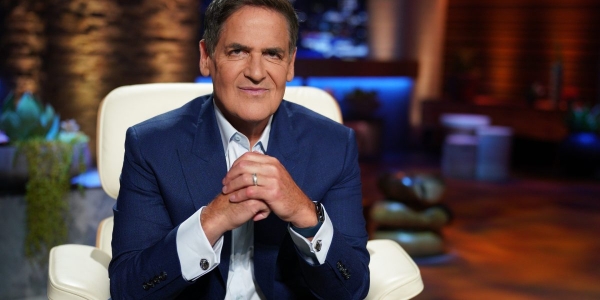
Billionaire tycoon Mark Cuban has a message for corporate boards worried about the backlash decimating sales of Bud Light—getting woke does not mean going broke.
“People want to do business with companies that care about their customers,” the Shark Tank star argued in an interview with the Pittsburgh Post-Gazette published on Sunday.
With that, Cuban pushed back against a rising tide of criticism aimed at companies that embrace social causes outside of their core business—and took a side into a heated debate over business’s role in society.
“There is a reason almost all the top 10 market cap companies in the U.S. can be considered woke,” said Cuban, who is also owner of the Dallas Mavericks NBA team. “It’s good business.”
Cultural issues
Companies have staked out positions on often divisive cultural issues in recent years in part because public relations consultants told them to do so. Firms like Edelman have argued that the best way to end up on the shopping list of predominantly progressive Gen Z consumers over the next 10 to 20 years is to support issues near and dear to them, including LGBTQ rights and environmental causes.
But this advice has come into question after Bud Light’s brief partnership at the start of April with transgender social media star Dylan Mulvaney was met with an impromptu boycott that led demand for Anheuser-Busch’s popular beer to plummet.
Over Memorial Day, the backlash became so bad that people posted images of fully stocked shelves of Bud Light next to ads offering the lager at a steep discount.
Conservatives celebrated the Bud Light boycott as a victory against what they call “woke capitalism,” which has been blamed for everything from Texas power outages to the recent collapse of Silicon Valley Bank—even when the root causes of the failures, such as failing to hedge a securities portfolio against interest rate risks, lie elsewhere.
In a bid to quell concern among stockholders, the CEO of parent company AB InBev, Michel Doukeris, emphasized the promotion was not part of a dedicated campaign but involved just one can sent to one influencer for one Instagram post.
His climbdown did not help: Shares in the mega-brewer have fallen 17% since the controversy began, versus a near 6% gain in the broader S&P 500 index.
Long-term benefits
The original motive for corporations to embrace issues like diversity was that doing so offered direct benefits to company directors interested in weatherproofing their businesses against unforeseen events.
Top officials at the European Central Bank, for example, have argued that a lack of diversity played a major factor in the lead-up to the 2008 global financial crisis.
“It was evident throughout the financial, political, and regulatory system and contributed to the depth and impact of the crisis,” concluded Ed Dibley, at the time an ECB supervisory board member, a decade later. “This is one reason we are emphasizing diversity of thought so highly, as it acts as a bulwark against groupthink.”
For investors like Blackrock, supporting businesses that want to change to more climate-friendly technologies is as much a financial decision as it is a public relations one.
Professional money managers like pension funds do not want to own companies that may have billions of dollars worth of stranded assets on their balance sheet, like oil rigs, coal mines, or power plants that burn fossil fuels.
Wait out the storm?
Cuban’s advice to AB InBev’s Doukeris and other corporate boardrooms meanwhile is not to panic, but to wait out the storm.
“Most CEOs have enough experience to know to just wait out the news cycle until they go to the next one,” he said.
Weeks after Mulvaney’s Instagram post, however, the topic does not appear to be going away, and the brand is running out of time before permanent damage is done, according to a former Anheuser-Busch sales executive.
Cuban’s own fellow Shark Tank star, Kevin O’Leary, even warned that the risk posed by platforms like Instagram and TikTok now needs to be carefully analyzed by corporate directors, and proposed a new board committee alongside those focusing on audit and compliance to deal with communications and media.
“It took decades to create the American beer, and exactly 32 hours to destroy it. So when you can’t control the message anymore through social media, which is clearly obvious, you better figure out what message you’re putting out before it ever gets out there,” O’Leary said last week.
